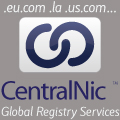Translation issues
Back to main Translation page
The one thing that everyone that has reviewed the issue of translation across the organisation can agree upon is that it is a very complex issue with no easy solutions.
There are a number of difficult issues with respect to translation, which we will list here in the hope of sparking some review and debate and hopefully draw gradual consensus of the best way forward:
1. Which languages should ICANN adopt as main languages?
The first thought is the UN languages: English, French, Spanish, Chinese, Russian, Arabic. However, these languages were agreed on as a result of the needs of the United Nations post-World War II.
We are now in a different era and the true demand for ICANN material may be entirely different. With limited resources, ICANN should focus its attention where the most demand lies. This is a case for Portugese to be included because of the very active participation within ICANN of Brazilians and Portugese people.
There is a small number of vocal supporters for Arabic, but it is uncertain what the real demand for materials in Arabic. Alternatively, there is comparatively little vocal demand for material in Chinese, but there is significant confidence that there is significant demand for ICANN materials in Asia.
The reality is that ICANN can only afford to support a small number of languages.
There are several possible options to help guide the decision:
* Build a demand-driven translation framework - provide material once demand reaches a certain level
* Select a small number and see if demand increases for other languages
* Ask the community to demonstrate its interest by using wiki-style editing to translate documents into their language
* Make the decision a purely financial one
Back to main Translation page
2. What documents to translate
Translation is time-consuming and expensive. ICANN therefore has to decide which documents to translate automatically, which to pass through a translation policy, and which to leave to automated translation.
ICANN has built a four-layer system to help simplify matters, but it is still important to define which documents should be translated and which not. And that decision must also be informed by demand and cost.
Back to main Translation page
3. Internal translation team?
One of the biggest problems currently faced by ICANN is checkers of translations. This is vital if the translations provided to the community are to be of any value.
ICANN currently uses staff conversant in other languages and occasional volunteers to check material. However, the process is slow and inconsistent.
There is a case for having an internal ICANN translation team - since this would allow for expertise to be built up, plus for fast turnaround of translations. However, that team would need to comprise of five or six full-time employees, and that expense would have to be budgeted for and justified to the ICANN community.
Without more information about the actual demand and need for documents in other languages, this is currently a difficult argument to make.
Back to main Translation page
















